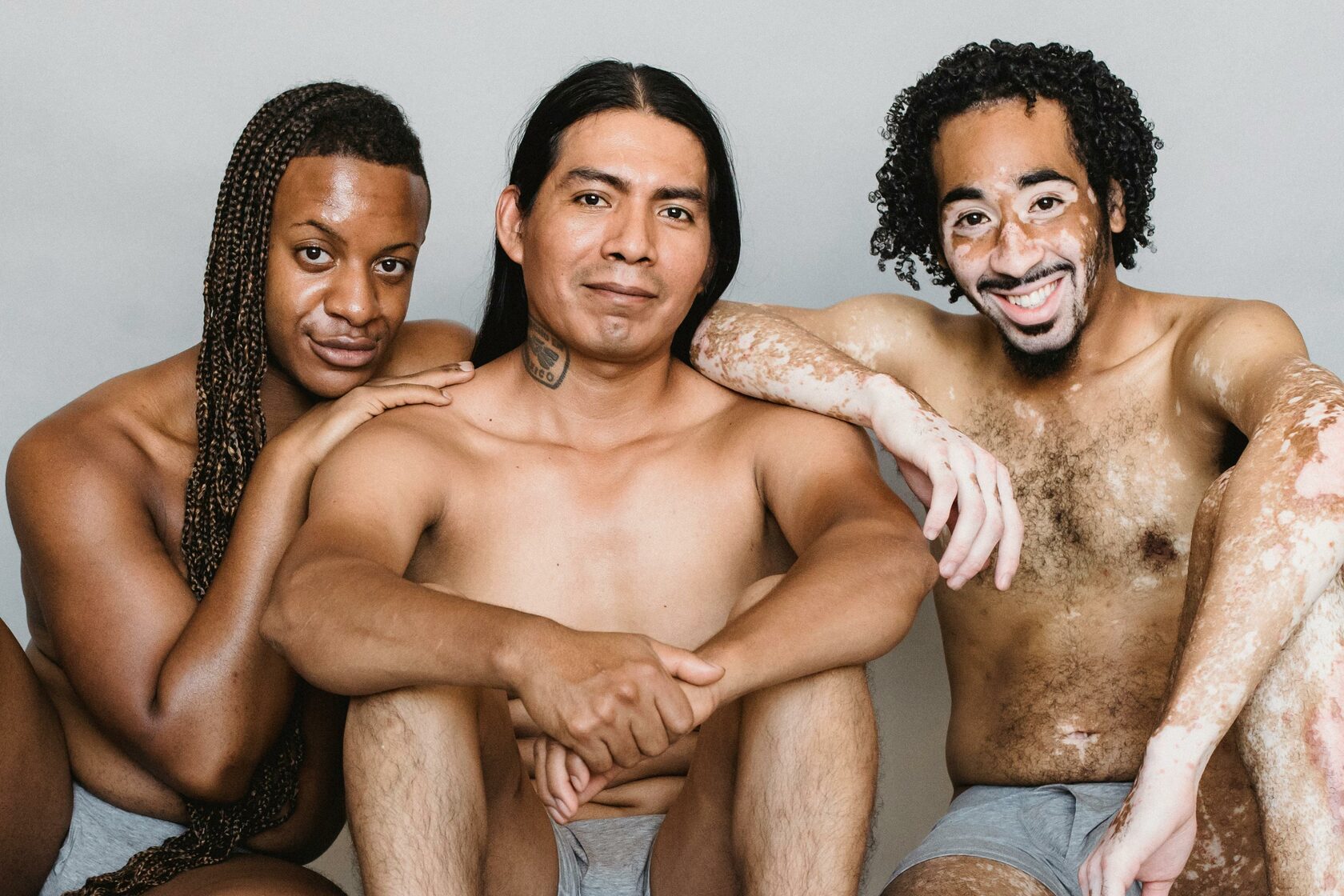Sex positivity is the belief that all consensual sexual experiences and expressions are valid, healthy, and worthy of respect. It promotes open communication, education, and the rejection of shame or judgment around sexuality, empowering individuals to make informed choices that align with their values and desires.
Join Flure in discovering a path to healthier relationships, improved mental well-being, and deeper personal freedom.

What is sex positivity?
Sex positivity is the acceptance and celebration of all consensual sexual expressions and practices without judgment or stigma. It encourages open dialogue, informed decision-making, and mutual respect in matters of sexuality and relationships.
Sex-positive examples
Sex positivity can show up in various ways, including:
These practices help build a more inclusive and understanding perspective on human sexuality.
- Supporting comprehensive sex education
- Respecting personal choices
- Promoting safe and consensual practices
- Celebrating diverse identities and orientations
- Fostering open communication
These practices help build a more inclusive and understanding perspective on human sexuality.
Does "sex-negativity" exist?
Absolutely, sex-negativity is real. It’s the mindset that treats sex and sexuality as taboo, shameful, or wrong. You’ve probably seen it in hush-hush conversations, judgmental attitudes, or discomfort when sexual topics come up. It’s that feeling that certain choices or identities are "bad" or "inappropriate."
Sex-negativity often comes from cultural or societal norms that push shame or misinformation. It can discourage people from exploring their identities, asking questions, or talking openly about sex and relationships. By challenging these ideas, we create space for healthier, more accepting conversations about sexuality.
Sex-negativity often comes from cultural or societal norms that push shame or misinformation. It can discourage people from exploring their identities, asking questions, or talking openly about sex and relationships. By challenging these ideas, we create space for healthier, more accepting conversations about sexuality.
From "sexual revolution" to "sex positivity"

The journey from the sexual revolution to modern sex positivity reflects decades of cultural and societal shifts around sexuality. The sexual revolution of the 1960s and 1970s challenged traditional norms, advocating for sexual freedom, reproductive rights, and the destigmatization of premarital sex. This movement paved the way for discussing autonomy, pleasure, and relationship equality.
By the 1980s and 1990s, conversations around sexuality expanded to include a broader understanding of consent, safer sex practices (primarily spurred by the AIDS crisis), and the validation of diverse sexual orientations and identities. Feminist movements of the time also played a key role, critiquing power dynamics in sexual relationships and emphasizing the importance of mutual respect and agency.
The term “sex positivity” began to take root as a way to embrace all consensual sexual practices, moving beyond liberation to focus on inclusivity, education, and choice. It rejected judgment and shame, supporting everything from abstinence to BDSM as long as it involved informed consent and respect for boundaries.
Today, sex positivity continues to evolve, advocating for comprehensive sex education, open dialogue, and the normalization of conversations about sexuality. It recognizes the diversity of human experiences, fostering a culture where individuals can explore their desires and boundaries without fear of stigma or judgment.
By the 1980s and 1990s, conversations around sexuality expanded to include a broader understanding of consent, safer sex practices (primarily spurred by the AIDS crisis), and the validation of diverse sexual orientations and identities. Feminist movements of the time also played a key role, critiquing power dynamics in sexual relationships and emphasizing the importance of mutual respect and agency.
The term “sex positivity” began to take root as a way to embrace all consensual sexual practices, moving beyond liberation to focus on inclusivity, education, and choice. It rejected judgment and shame, supporting everything from abstinence to BDSM as long as it involved informed consent and respect for boundaries.
Today, sex positivity continues to evolve, advocating for comprehensive sex education, open dialogue, and the normalization of conversations about sexuality. It recognizes the diversity of human experiences, fostering a culture where individuals can explore their desires and boundaries without fear of stigma or judgment.
What does it mean to be sex-positive in today’s culture?
Being sex-positive today is about ditching shame and embracing the freedom to explore, question, and celebrate your sexuality—whatever that looks like for you. It’s a modern mindset rooted in respect, consent, and the belief that all consensual sexual expressions are valid and worthy of dignity.
In today’s culture, sex positivity means creating space for open conversations—whether it’s about boundaries, desires, or identities—and rejecting the outdated idea that there’s a "right" way to experience sex. It’s about empowering people to own their choices, whether they’re celibate, kinky, monogamous, or anything in between.
At its core, sex positivity is a cultural shift toward inclusivity, education, and acceptance. It’s championing safer sex practices, advocating for marginalized voices, and fostering a world where everyone feels seen and respected in their unique sexual journey.
In today’s culture, sex positivity means creating space for open conversations—whether it’s about boundaries, desires, or identities—and rejecting the outdated idea that there’s a "right" way to experience sex. It’s about empowering people to own their choices, whether they’re celibate, kinky, monogamous, or anything in between.
At its core, sex positivity is a cultural shift toward inclusivity, education, and acceptance. It’s championing safer sex practices, advocating for marginalized voices, and fostering a world where everyone feels seen and respected in their unique sexual journey.
Sex-positivity & mental well-being

Sex positivity isn’t just about feeling good in your body—it’s about freeing your mind, too. Embracing a sex-positive mindset can ease the heavy burdens of shame, guilt, or fear tied to outdated societal norms. By welcoming open, honest conversations about sex, people can feel more confident in their choices and more connected to themselves and others.
We create space for stronger relationships and deeper trust when we remove judgment and embrace consent, communication, and inclusivity. Feeling safe and accepted in your sexual identity can boost self-esteem and reduce stress, paving the way for healthier emotional and mental well-being.
Sex positivity also shines when it comes to diversity. Celebrating the full spectrum of sexual orientations, identities, and expressions helps break down stigmas that can fuel anxiety and isolation. It’s not just about acceptance—it’s about empowerment, giving people the freedom to explore and own their unique stories with pride and peace of mind.
We create space for stronger relationships and deeper trust when we remove judgment and embrace consent, communication, and inclusivity. Feeling safe and accepted in your sexual identity can boost self-esteem and reduce stress, paving the way for healthier emotional and mental well-being.
Sex positivity also shines when it comes to diversity. Celebrating the full spectrum of sexual orientations, identities, and expressions helps break down stigmas that can fuel anxiety and isolation. It’s not just about acceptance—it’s about empowerment, giving people the freedom to explore and own their unique stories with pride and peace of mind.
How to be sex positive
Being sex positive is about embracing openness, education, and respect in how you approach your own sexuality and others’. It’s a journey of unlearning stigmas and celebrating the diversity of human experiences. Here’s how you can practice sex positivity:
Value your sexuality
Recognize that your sexual feelings, desires, or lack thereof are valid and deserve respect. Embrace your preferences and boundaries without guilt, and allow yourself to explore what feels authentic to you.
Share and respect pronouns
Using and respecting others' pronouns fosters an inclusive environment and shows that you honor their identity. It's a simple but powerful way to affirm someone's gender and build mutual trust and understanding.
Question your reactions toward sex
Notice how you react to conversations about sex and where those feelings come from. Challenging any internalized shame or judgment allows you to replace outdated beliefs with a more open and informed perspective.
Advocate for sex-positive policies and organizations
Support comprehensive sex education, inclusive healthcare, and organizations that promote sexual well-being. Advocacy helps create systemic change and ensures that more people have access to the resources and respect they deserve.
Learn more about sex positivity
Educate yourself by reading, listening, or attending workshops on sexuality, consent, and healthy relationships. The more you know, the more you can challenge misconceptions and help others understand sex positivity.
See a sex therapist
If you struggle with sexual concerns or internalized shame, a sex-positive therapist can help. They provide a safe space to explore your feelings, address challenges, and build a healthier relationship with your sexuality.
Celebrate diversity
Respect and embrace the full range of sexual orientations, genders, and relationship styles. Acknowledging that there’s no “one-size-fits-all” approach to sexuality is central to sex positivity.
Practicing sex positivity is an ongoing effort to create a world where everyone feels safe, respected, and empowered in their sexual identity and choices.
Resources to learn on how to be sex-positive
Exploring sex positivity can be enlightening and empowering. Here are some resources to guide you:
Additionally, consider exploring the Flure app, a platform designed to connect like-minded individuals in a sex-positive environment. Flure encourages open communication and exploration of desires, aligning with the principles of sex positivity.
- "Action: A Book About Sex" by Amy Rose Spiegel
- "Come As You Are" by Emily Nagoski
- "The Ethical Slut" by Dossie Easton and Janet W. Hardy
- "Sex Positive" Documentary
- "Sexuality and Social Justice: A Toolkit" by Meg-John Barker
- "Pleasure Activism" by adrienne maree brown
- "Sexuality: A Very Short Introduction" by Veronique Mottier
- "Sexual Citizens" by Jennifer S. Hirsch and Shamus Khan
- "The Sex Myth" by Rachel Hills
- "Sex at Dawn" by Christopher Ryan and Cacilda Jethá
Additionally, consider exploring the Flure app, a platform designed to connect like-minded individuals in a sex-positive environment. Flure encourages open communication and exploration of desires, aligning with the principles of sex positivity.
Conclusion
Sex positivity is more than just a movement; it's a transformative approach to personal and societal attitudes towards sex and sexuality. It champions the idea that sexual expression is a natural and valuable part of the human experience, deserving of respect and freedom from judgment. By embracing sex positivity, we can build a more inclusive, understanding, and fulfilling world. Embracing sex positivity is not only about personal liberation but also about fostering a culture that values consent, communication, and respect in all sexual encounters. It's about creating a world where everyone can explore their sexuality without fear or shame. By promoting education, understanding, and empathy, we can all contribute to a more sex-positive society.
FAQ
What does it mean to be sex positive?
Being sex positive means embracing an open, respectful, and non-judgmental attitude toward all consensual sexual expressions and practices, while prioritizing consent and education.
How can you tell if someone is sex positive?
A sex-positive person respects diverse sexual choices, supports open communication about sex, and avoids shaming or judging others' preferences.
What is the difference between sex positive and sex-negative?
Sex positivity celebrates and normalizes consensual sexual expressions, while sex-negativity views sex as taboo, shameful, or inherently harmful, often discouraging open discussions and exploration.
Flure isn’t just a dating app—it’s your gateway to meaningful connections and unforgettable experiences. Whether you’re seeking new friendships, someone special, or just exploring, Flure makes it easy to find your kind of people. Built on trust, safety, and authenticity, Flure turns your online dating into something truly magical. Ready to make connections that matter? Join Flure today and see where it takes you!








